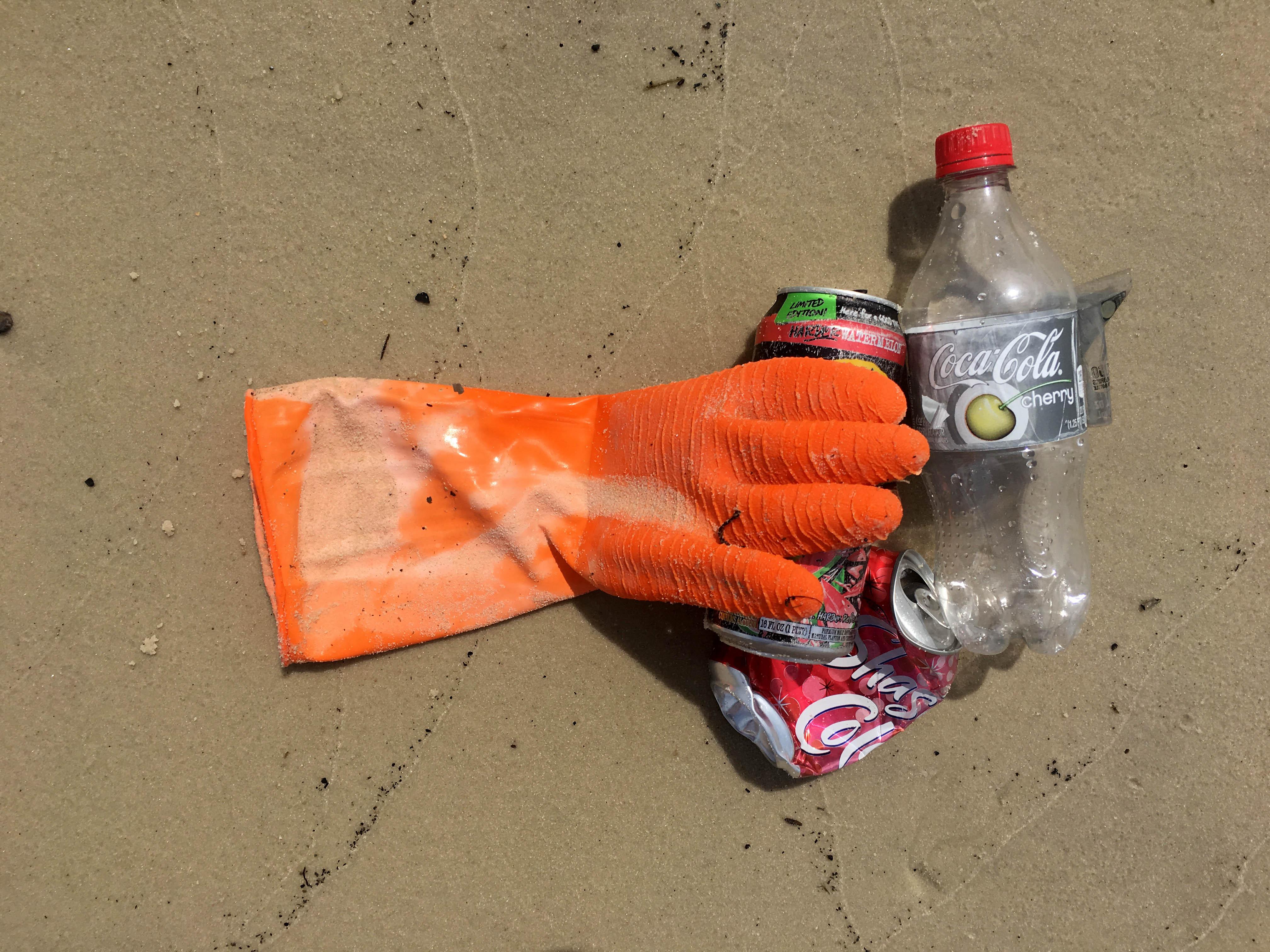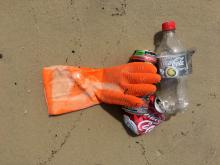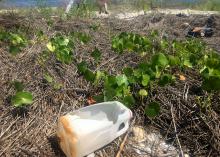Information Possibly Outdated
The information presented on this page was originally released on March 29, 2019. It may not be outdated, but please search our site for more current information. If you plan to quote or reference this information in a publication, please check with the Extension specialist or author before proceeding.
Help the environment with one easy tool: You
BILOXI, Miss. -- Marine debris is a growing problem, but the solution is staring at us in the mirror.
Marine debris is defined as any manmade material intentionally or unintentionally discarded in the marine environment. Examples include trash, delict vessels, single-use plastic products, and abandoned fishing gear and nets.
Plastics, which make up the majority of marine debris, are hazardous to marine life and humans through entanglement, ingestion, toxicity, habitat destruction and more. Plastic products fit into our busy, fast-paced society easily because they are cheap, lightweight, durable and easily accessible.
Unfortunately, plastics are not biodegradable, so they accumulate in landfills or the natural environment. Millions and millions of people worldwide use single-use plastics products every day, several times a day. Some countries with high populations and poor waste management systems directly dump thousands of pounds of trash into rivers and waterways every day.
Public awareness on this issue has never been higher. As a result, many preventative methods have come to light. Prevention can pertain to the products we buy, how we dispose of our trash, and how we spark conversations about what it means to keep trash out of waterways in our communities. Here are some examples of prevention:
- Bring your own reusable cloth bag to the grocery store.
- Bring smaller reusable bags to the grocery for produce.
- Don’t buy plastic beverage bottles.
- Carry a reusable water bottle.
- Refuse straws.
- Bring your own to-go containers to restaurants.
- Use bar soap.
We all need to create new habits. Research suggests that it takes 21 days to form a habit, whether to eat healthier, exercise more, drink more water, or speak more positively to yourself and your neighbor. It takes time and baby steps.
Generally, when people try to start a new habit and fail, it’s because they took on too much at one time. The secret is to start small and grow from there. If we can make daily decisions to be healthier versions of ourselves, why not make daily decisions that have implications for a heathy environment?
Start by taking a refillable water bottle to work, the gym and restaurants. Not only is this healthy (more water into the body), but it also decreases the amount of plastic bottles we would have purchased (saves money) and thrown away after a single use (less waste). That’s an environmentally conscientious triple whammy.
Once that habit sticks, you can transition into another one, like refusing single-use plastic straws or using reusable cloth bags. Over the course of time, your friends, family and neighbors will see your actions. Your example will spark the ultimate conversation: What can you do every day that will stimulate a healthy environment?
Prevention is the single most important thing we can do as individuals to lessen the marine debris pollution problem. It begins with us. Heed the words of anthropologist Margaret Mead: “Never doubt that a small group of thoughtful, committed citizens can change the world. Indeed, it is the only thing that ever has.”
Mississippi Coastal Cleanup’s Star-Spangled Cleanup will take place July 5. Register for the cleanup. (http://mscoastalcleanup.org)

Editor’s Note: Extension Outdoors is a column authored by several different experts in the Mississippi State University Extension Service.





